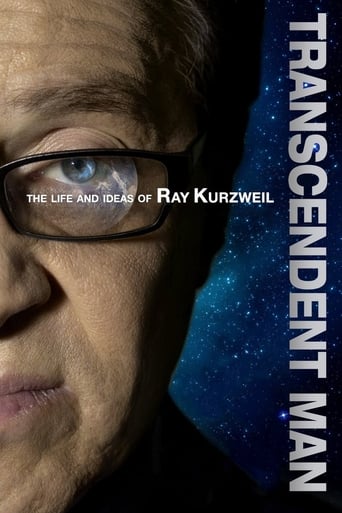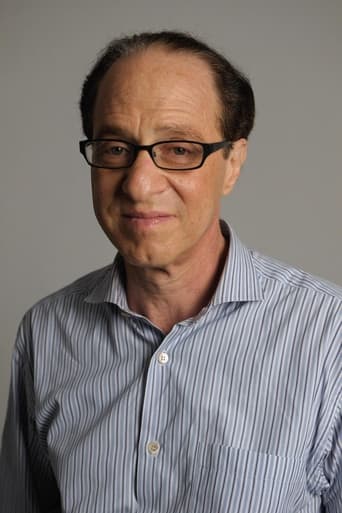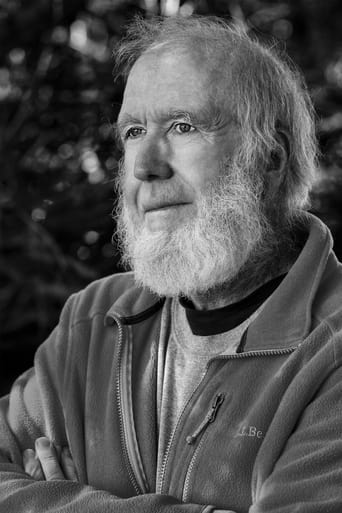
The compelling feature-length documentary film, by director Barry Ptolemy, chronicles the life and controversial ideas of luminary Ray Kurzweil. For more than three decades, inventor, futures, and New York Times best-selling author Ray Kurzweil has been one of the most respected and provocative advocates of the role of technology in our future.
Reviews
the audience applauded
People are voting emotionally.
Excellent, Without a doubt!!
Pretty good movie overall. First half was nothing special but it got better as it went along.
The future isn't talked about enough. We need to be able to predict where we are going as a society so we can be ready for what's going to happen. Ray Kurzweil is a futurist. He spends all day every day thinking about the future. He is a genius inventor and he even invents things that we don't have the technology to make yet. If there's someone who can predict the future of technology, this is the guy. If you read his book, The Singularity is Near, you know exactly what "The Singularity" is and what is means for the human race. To put it in one sentence, it's the point where technology advances so exponentially fast that we can't even comprehend the growth. Ray explains that technology is advancing exponentially, and in a few decades, it will be advancing too fast for our own brains to comprehend. In order to keep up, we must merge with machines to enhance our intelligence and become immortal, super-intelligent, god-like cyborgs that will mostly spend time in full submersion virtual reality doing whatever our imaginations can imagine. The book explains everything that this documentary doesn't and if this doc interests you then I highly recommend the read. It's really hopeful stuff and people need to realize how important technology is going to become. We use our cellphones so much that they become a part of us. Sooner or later they will be a part of us. This is a very good summary to a very interesting subject. If you're very religious you may not like it due to its atheist theme, but people with an open mind will be very intrigued.
(www.plasticpals.com) Regardless of what you think of Ray Kurzweil, his predictions, or the singularity, they certainly make interesting subjects for a documentary. If you're new to the singularity, Transcendent Man gives a primer on what exponential growth in information technology may bring for genetics, nano technology, and robotics – all within the coming decades. His predictions extrapolate on existing technologies and are vague enough that there's enough wiggle room to be convincing, at least superficially. Fascinating though these ideas may be, I felt the intimate portrait of Kurzweil himself is the real heart of the film. When you see how many supplements he takes on a daily basis, to say he's an eccentric would be putting things lightly.Kurzweil believes, for example, that he will one day bring his father back from the dead. Not a biblical resurrection, mind you, but one based on data. He believes that he will be able to feed information about his father's life (boxes and boxes collecting his father's personal letters, music compositions, and other documents), including his own memories of him, into a computer simulation that will magically recreate his persona. Most of the time, I felt like I had a good grasp on the concepts discussed in the film, but I take issue with this. Assuming that such a simulation were possible, it could never be accurate because it would be based entirely on Kurzweil's perception of his father and scraps of information that can't possibly reflect the depth of one's soul (for lack of a better term). Others' perceptions are usually quite different from how we see ourselves, and people usually have a hard time understanding themselves in the first place! I can play along and say that maybe, someday, we'll be able to "back up" our brains onto computers, but without those brains, a simulation could never be perfect. I'm sure such a simulation would have beneficial psychological effects for the bereaved, but that's beside the point. It seems to me that if Kurzweil is willing to delude himself into believing a simulation of his father is as good as the real thing (or at least good enough to claim it will cure his father's death), then he is probably deluding himself about a lot of other things, too. The film does give us some perspective through dissenting opinions, but everyone interviewed (with the exception of a religious radio talk show host) agrees to some extent with what Kurzweil has predicted.It's fun to think that an artificial intelligence may bootstrap itself, and our own limited brains, into higher and higher levels of consciousness. Yet I can't help but be reminded of that old adage, "anything that seems too good to be true probably is". Scientists with expertise outside of Kurzweil's domain (such as biology) argue that he oversimplifies things. Others say he is simply overly optimistic. I don't think either accusation is unjust. The film paints Kurzweil as traumatized by the loss of his father, and terrified of his own mortality. It isn't surprising that some accuse him of pseudo-scientific religious quackery of the sort Kurzweil dismisses as comfort for the dying.
Seldom do technologists gain prominence for their prophesies. Our field, you see, values doing over thinking. You believe we'll be Tom Cruising over our Minority Report-esque holograms in 2020? Great. Now build it.But Ray Kurzweil is an exception. He's a man whose words do indeed speak louder than his actions. He famously predicted the year a computer will finally beat the best human chess players, among many other things (89 of his 109 predictions from 1999 have so far been proved right.) His actions haven't been too unimpressive either — he built a computer at age 17 (in 1965 no less) and invented a reading machine for the blind.So we've established he's an Important Man. Now let's see what makes him Transcendent.In Transcendent Man, Mr. Kurzweil gives us a lowdown of what we are to expect from the next couple decades. Namely: robots will take over us, we'll start planting chips made of nanotechnology into our bodies, genetic modification will make us immortal, and soon enough, singularity. Whatever that means.The documentary follows Kurzweil in his daily life as he meets with smart people in lab courts, and William Shatner, to whom he successfully sells the idea of taking 150 pills a day (after all, we do want to see Captain Kirk witness the launch of the real Enterprise someday, no?)We get a glimpse of the labs and institutions where the apparent future of mankind (or the beginning of the apocalypse to some) is being initiated. They all utter the same phrases, and even the naysers appear to be cheer leaders of human triumph. Did I mention? Robots. Genetics. Nanotech. Immortality. Singularity.BOOM.If you ask me, he's being optimistic. But then again, he knows something the rest of us don't — the true power of the exponential curve. All technology, you see, advances exponentially. Moore's Law told us the number of transistors on a chip doubles every two years. Thirty two years after the first personal computer, we had one that sits in our pocket and lets us FaceTime our grandparents. Mark Zuckerberg recently made the claim that we're individually sharing double of everything year after year. I don't want to think about what this means for the pornography industry in 2020.And lest you forget? Four years ago, Twitter was a seven letter word in the dictionary. Three years before that, "Facebook" referred to a book with pictures you wouldn't want your kids to see. Today, these terms are something most of us live and die by everyday.Keeping this in mind, I guess it's possible that Mr. Kurzweil's predictions may not end up too far from the truth. Who knows what we'll be verbing in 2020?Ask Ray Kurzweil.
Ray Kurzweil has known he wanted to be an inventor from the age of 5, and has now been at it for all those years. Along the way he realized that the timing of inventions was critical to their success, otherwise most inventions fail. Think e-readers 10 years ago, tablet PC's 7 years ago, and the Apple Newton – all bombs then, but now the timing is right. So he started analyzing technology trends and discovered the "law of accelerating returns"; in summary that technology grows in a predictable and exponential patterns and that amazing things our in our future. Ray has had amazing success with his publicly made predictions. For instance, in the book "The Age of Spirtual Machines", he made 147 predictions for the year 2009, of which 86% are correct or essentially correct. (Reference: "How My Predictions are Faring, Ray Kurzweil, Oct. 2010; http://c0068172.cdn2.cloudfiles.rackspacecloud.com/predictions.pdf ) In other words when Ray Kurzweil speaks, people listen and you should too. I will admit, when I first heard is ideas of how man will evolve with technology, I was quite skeptical. But as I dug deeper into why he was saying this would happen, I began to see the trends are in his favor. Think about it; have you noticed that technology has been moving at a quickening pace lately? The film follows Ray over several years, catching him on his lecture circuit, at his company, his home, and traveling about. Throughout the film Ray explains the "law of accelerating returns" and where it will lead to. Also Ray's critics and supporters give their opinions throughout. Ray himself seems to be an incredibly calm individual who rarely strays from his relaxed tone of speaking. Ray's trends predict that technology trends are crossing over into health-care and that if you can live for another 15 years you have the chance of living a very long time. Ray's predictions give us hope in a time when so much around us seems gloomy. The documentary is a fascinating look at Ray and his ideas, and I highly recommend it.
Top Streaming Movies














